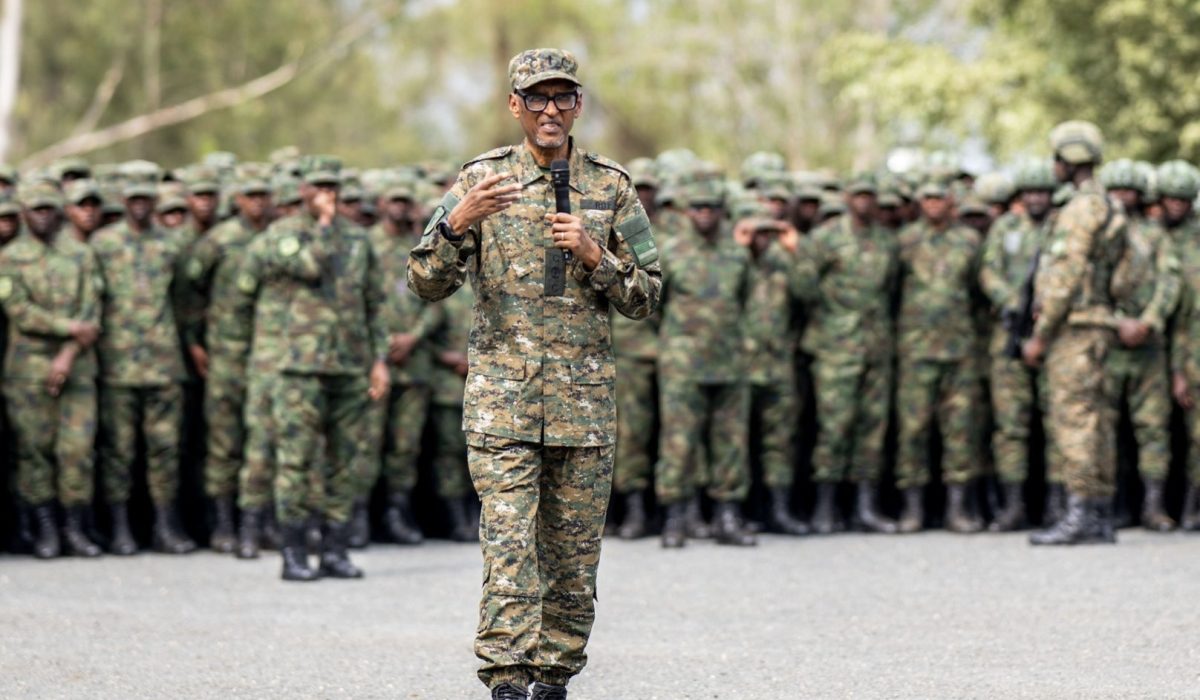It is no secret that across every conflict theatre, the interests of the permanent, veto-holders members of the UN Security Council impede fact-based, Charter-grounded decision-making and peace efforts. This has particularly far-reaching implications for the African continent, which continues to demand a meaningful voice on the Council and struggles to have its concerns heard amid the manoeuvrings of powerful members advancing their own agendas. This was especially evident on 22 August, when the UN organ convened a briefing on alleged massacres purportedly taking place in eastern DRC.
Rwanda found itself in the dock. But this time, instead of taking a defensive stance, it went on the offensive. The message was clear: the UN must do better. In concluding his intervention, Rwanda’s UN ambassador, Martin Ngoga, delivered two key points.
One, “the territorial integrity of the DRC is non-negotiable. So is the territorial integrity of neighbours of the DRC, including Rwanda.”
Two, “Sovereignty comes along with obligations. Sovereign responsibilities of any member country of the UN include fair treatment of citizens. The DRC must stop treating part of its population as less than citizens.”
One would assume these are basic principles for which the Council needs no reminding. But surprisingly, it does. Within these principles, however, lies the solution to the crisis member states have been seemingly looking for. In other words, the path to peace in Congo is already enshrined in the founding texts of the UN, but the often conflicting interests of the most powerful states, get in the way of their enforcement. Indeed, one could argue that Rwanda’s real “crime” is to place UN principles above the interests of these powers.
Interests over principles: UN’s moral compass shattered
When it comes to the DRC crisis, a great deal of energy is spent fuelling the conflict. Facts and peace efforts are brushed aside, while conspiracy theories and smear campaigns take centre stage in UN chambers.
As Ambassador Ngoga pointed out, the genocidal outfit FDLR is not only a threat to Rwanda’s territorial integrity but also to its very existence as a nation. Yet the Security Council treats it as an afterthought, despite UN reports demonstrating Kinshasa’s backing of the group. He also noted their repeated refusal to denounce massive widespread hate crimes against Tutsi and Hema Congolese communities, for which there is abundant evidence, choosing instead to agitate around alleged war crimes by M23 rebels and Rwandan troops, for which no material evidence is presented.
Meanwhile, focus is placed on Rwanda’s supposed secret plan to annex parts of Congo. To deflect attention from the threat posed by the FDLR, claims are made regarding Rwanda’s alleged designs to control and loot Congolese minerals. None of these allegations, endlessly echoed in Geneva and New York, withstand scrutiny.
Ambassador Ngoga’s unequivocal statement that the DRC’s territorial integrity is non-negotiable should put any annexation conspiracy theories to rest, not only because Rwanda’s word carries weight but also because such theories quickly unravel when measured against historical facts, present realities, and international power dynamics.
Moreover, there is already a plan for the outcome that anti-Rwanda voices claim to seek: Rwanda’s withdrawal. The Washington peace agreement provides for the neutralisation of the FDLR and the lifting of Rwanda’s defensive measures, with clear steps for implementation. Yet the UN continues to serve as an echo chamber for voices urging that Rwanda’s security concerns be ignored and the agreement derailed. Calls persist for Rwanda to lift its defensive measures, completely disregarding the threat they are designed to contain and the steps required to achieve the intended outcome. The message, in effect, is that Rwanda’s territorial integrity—and even its survival—are of no concern to the UN.
Furthermore, it is nonsensical to continue accusing Rwanda of seeking to plunder Congo’s minerals. Kigali has no interest in undermining a peace agreement widely regarded as favourable to it. The long-awaited economic integration framework, soon to be signed by heads of state in Washington, will formalise existing mineral supply chains and enable Rwanda to leverage its refining capacity, as others do, without undue scrutiny or the constant accusations of looting.
Responsibility to protect: Rwanda’s unwavering moral compass
The responsibility to protect falls squarely on the UN’s shoulders. But alas, the Security Council fails to name evil even when it rears its ugly head.
In the Kivus: rearming known genocidaires; spreading their ideology in schools, social media, TV programmes, and official Kinshasa communications; systematic attacks—including public lynchings and acts of cannibalism—targeting Tutsi and perceived members of that group, such as the Hema; and the destruction of their property and livestock.
In North Kivu and Ituri: horrific massacres and beheadings by CODECO and ADF terrorist elements.
All these crimes are committed either by Congolese armed forces and their allied militias, or by foreign actors whom the FARDC and UN peacekeepers have failed to neutralise for decades.
Should it not be shameful for the Security Council to invoke sovereignty and territorial integrity when none of the responsibilities these concepts entail are fulfilled by the Congolese government or enforced by the UN’s own multi-billion-dollar, failed peacekeeping mission?
Rwanda has consistently upheld the responsibility to protect, with its own history serving both as a cautionary tale and an inspiration to do better. It has intervened in Darfur, Mozambique, and the CAR, and will most likely do so again in the DRC if necessary. It does not matter who the victims are—whether Tutsi and Hema in Congo, Muslim Fulani in the CAR, Mwani Swahili-speaking populations in Mozambique, or Fur, Masalit, and Zaghawa communities in Darfur.
Relations with Ethiopia were strained during the Tigray war due to hate speech targeting Tigrayans and concerns that state counter-insurgency measures indiscriminately affected the entire community. These relations have since improved following the end of the conflict. This is no coincidence.
The principles enshrined in UN documents remain clear: we must stand in solidarity with any group targeted for who they are, and with those who are victims of terrorism. It is simply absurd to claim, as some did during the recent Security Council briefing on the DRC, that Kigali supports rebels whose alleged objective is to uproot Congolese Hutus or any other Congolese community—something the RPF-led government rejected even in the aftermath of the most devastating and brutal genocide on Rwanda’s soil. If M23 had that objective in mind and were pursuing it, Rwanda would be the first to intervene and stop such madness, just as it does wherever it can.
Rwanda stands firm in defence of UN principles and will most likely continue to do so, even when the UN itself is found wanting.





